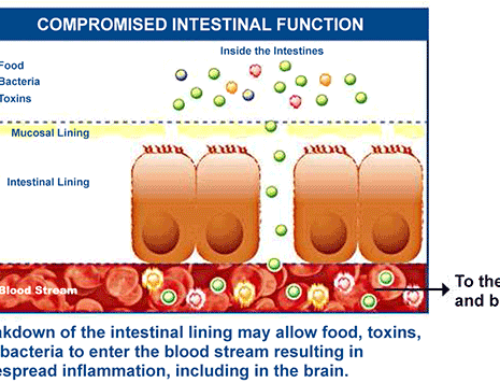 What Causes Fibromyalgia?
What Causes Fibromyalgia?
Fibromyalgia syndrome is characterized by aching pain and stiffness in soft tissues including muscles, ligaments, and tendons. There are areas of great sensitivity called “tender points.” Other characteristics may include sleep disturbances, restlessness, numbness in arms and legs, irritable bowel syndrome, chronic fatigue, and headaches.
The cause of fibromyalgia seems to be unknown, but it may be triggered or exacerbated by stress. Emotional, physical, or mental stress originates from a wide range of things such as job stress, family problems, poor diet, adrenal fatigue, an imbalance of hormones (such as thyroid or sex hormones), or even air pollution.
For more on possible causes see my article “Signs and Symptoms of Fibromyalgia, Arthritis, and Chronic Fatigue Syndrome? The cure may be more basic than you think.”
Treatment
Conventional drug therapy may include
- tricyclic antidepressants in low doses to help reduce pain and promote sleep
- sedatives to help fibromyalgia sufferers sleep
- local anesthetics injected into tender points to relieve pain
While drug therapy can provide some short-term relief, non-drug treatments are usually the most helpful. Specific non-conventional testing may help the physician discover the root cause of the symptoms of fibromyalgia. Along with those lab tests, a wide range of therapies can be used to alleviate specific symptoms. Here are some of the approaches I take:
Testing for endocrine imbalances is an important diagnostic procedure. A thyroid panel may reveal hypothyroidism (an under active thyroid gland) that causes a decreased metabolic rate which can lead to decreased energy, unwanted weight gain, and a decline in hormone production of the body. An imbalance of hormones can lead to chronic fatigue and pain. A decrease in specific hormones could include progesterone, estrogen, and DHEA, as well as cortisol, which functions in helping the body cope with stress and control inflammation and pain in our body and promotes sleep and a sense of well-being.
I use salivary hormone testing to assess hormone levels. If hormone support is necessary, I use bioidentical hormones and/or nutritional and botanical support. For instance, if a decrease or imbalance of hormones is contributing to the root cause of fibromyalgia, then a replenishing of natural hormones will be more effective long-term in decreasing the signs and symptoms of fibromyalgia rather than “Band-Aiding” the symptoms with pain medications, tricyclics, or sedatives.
Testing for food sensitivities and proper nutrition. A simple blood test can determine if the body is releasing IgG antibodies against specific foods causing pain, inflammation, fatigue, gastrointestinal problems, and other symptoms. Great results can often be achieved by simply identifying and eliminating problem foods from the diet. I ask patients to record and bring in meal diaries for me to assess so I can make recommended changes for a nutritionally sound meal plan.
Acupuncture and acupressure treatments can be used to reduce the pain of fibromyalgia and promote a natural sedative effect. Acupuncture points also are used to tonify the body leading to increased energy.
Systemic enzyme therapy can assist in pain and inflammation reduction and assists in liver detoxification.
A moderate exercise routine is also helpful. Fifteen to twenty minutes of aerobic exercise several times a week with gentle stretching before and after exercise can help reduce symptoms. Too much or too little exercise may exacerbate symptoms, so it is important to monitor and assess the amount of exercise that works personally for the patient.
Awareness of emotional, mental, and physical stressors in life is crucial to a healthy body. Stress is a big factor in triggering or exacerbating symptoms associated with fibromyalgia. The personal counseling I offer patients often helps them to discover lifestyle changes they can make to improve their quality of life and reduce their stress-related symptoms.
Neurotransmitter testing may also help point to therapies that improve the quality and quantity of sleep. Tests can be done to measure serotonin levels and other neurotransmitters that may be affecting the patient’s sleep patterns. I may use amino acid supplementation if testing and symptomology reveal a decrease in certain neurotransmitter levels. Patients may also have an elevation in certain neurotransmitters that can cause an increased sensitivity to pain, calling for treatments to bring them into proper balance.
Calcium and magnesium supplements in a proper dosage help to promote muscle relaxation and blood flow and thus reduce muscle pain.
Detoxification of the body can also help alleviate symptoms. Use of a combination of nutrients, herbs, systemic enzymes, and IV therapy promote the body’s natural detoxification process and remove toxins that can cause muscle pain.




